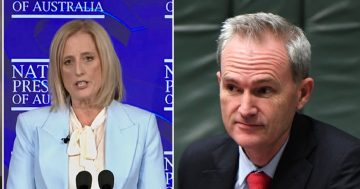 1. This week 10 years ago, Prime Minister, Julia Gillard announced the establishment of the Bushfire and Natural Hazards Cooperative Research Centre (CRC) to build on the work of the existing Bushfire CRC and expand research efforts into other natural hazards including floods, earthquakes, cyclones and tsunamis.
1. This week 10 years ago, Prime Minister, Julia Gillard announced the establishment of the Bushfire and Natural Hazards Cooperative Research Centre (CRC) to build on the work of the existing Bushfire CRC and expand research efforts into other natural hazards including floods, earthquakes, cyclones and tsunamis.
Ms Gillard said the new CRC would conduct interdisciplinary research, including work with communities, to improve disaster resilience and reduce the human, social, economic and environmental costs of bushfires and other natural hazards.
“The expanded focus of the new CRC appropriately reflects the impact of broader natural hazards on the Australian community,” Ms Gillard said.
2. The Australian Federal Police (AFP) and the Australian Communications and Media Authority (ACMA) signed a Memorandum of Understanding to promote greater efficiency in identifying and removing websites containing illegal child exploitation images and helping to remove offenders from the community.
Deputy Chair of ACMA, Richard Bean said the strong relationship with the AFP saw ACMA at its most effective as a frontline Agency dealing with reports from the Australian public about child sexual abuse material and other illegal online content.
“Each and every item of child abuse material that is removed from the internet means a real reduction in the re-victimisation of the children depicted and the number of families inadvertently exposed to deeply disturbing content,” Mr Bean said.
3. Researchers from the University of Queensland (UQ) were working with the Federal Department of Families, Housing, Community Services and Indigenous Affairs to evaluate the impact of the new Dad and Partner Pay scheme — an extension of the Paid Parental Leave scheme that would provide up to two weeks of government-funded pay to eligible working fathers or partners, including adoptive and same-sex parents.
Director of the Institute for Social Science Research at UQ, Professor Mark Western said researchers would collect data on patterns of leave uptake and report on emerging trends as the scheme was implemented.
“The scheme recognises the importance of fathers and partners and through evaluations such as this, we build the evidence base for future policy design and implementation,” Professor Western said.
4. In South Australia, Premier, Jay Weatherill announced plans to publicly fund State election activities to ensure greater transparency and accountability from political parties and candidates and that election-related activities would no longer rely on private donations.
Mr Weatherill said the reforms were about trust and integrity, as large powerful interests should not have an undue say in public policymaking.
“You only need look at the American political system to see the potentially corrosive influence of money in politics,” Mr Weatherill said.
“The community needs to have confidence that elections are determined by the policies and performance of political parties and not by the size of their election war-chest.”
5. Also in South Australia, a Productivity Commission report on government services revealed the State had more police per capita than any other in Australia, with 320 operational police staff for every 100,000 people — dramatically above the national figure of 268.
Minister for Police, Michael O’Brien said South Australians now had a bigger and better-resourced police force than ever before.
“Credit should be given to the thousands of men and women in uniform who work hard to protect and serve our community every day,” Mr O’Brien said.
6. Minister for Broadband, Communications and the Digital Economy, Senator Stephen Conroy announced the Telecommunications Universal Service Management Agency had signed new contracts for the National Relay Service (NRS) that would allow people with hearing or speech impairments to contact triple zero via SMS for the first time.
Senator Conroy said the improved NRS would enable hearing and speech-impaired people to also make and receive phone calls through a new two-way internet relay service; access all NRS services through a new application available on smartphone and other internet-enabled devices; access a video relay service; and use a web-based service that provided captioned telephony.











